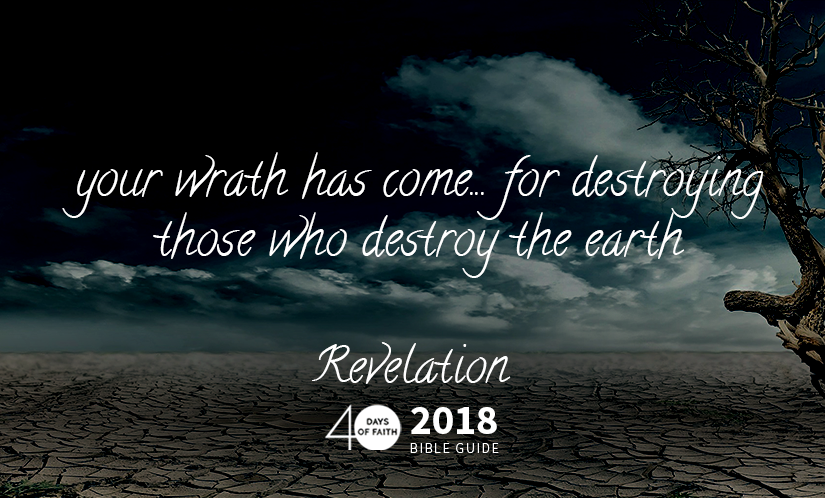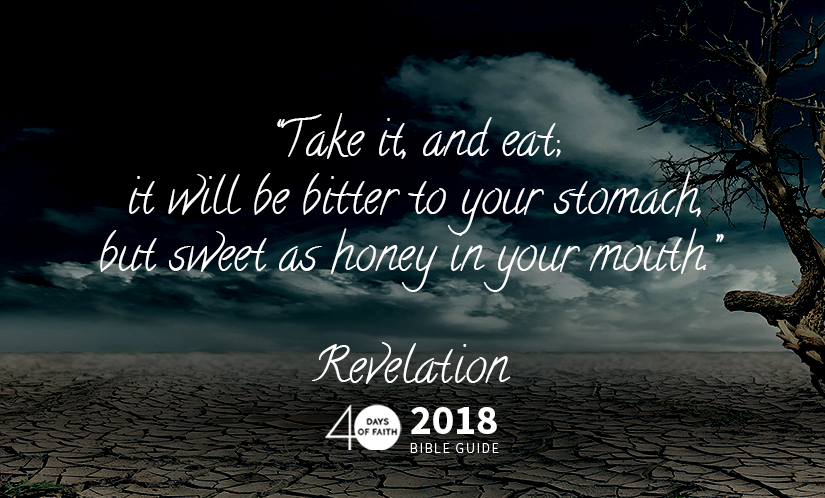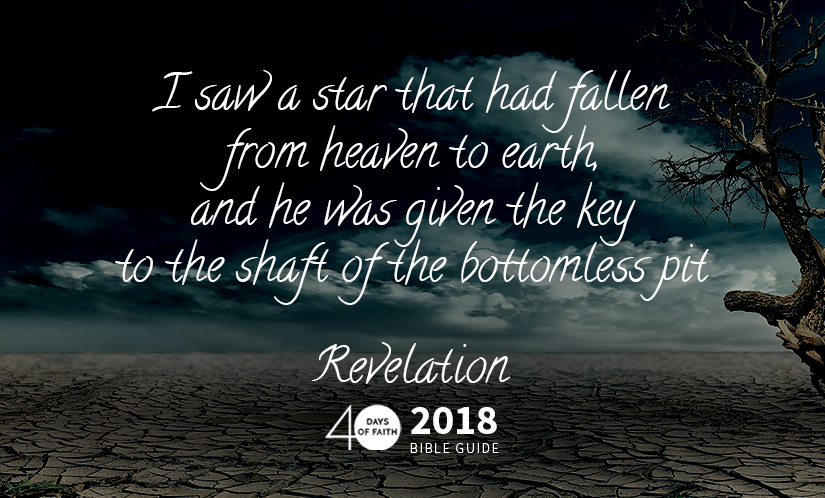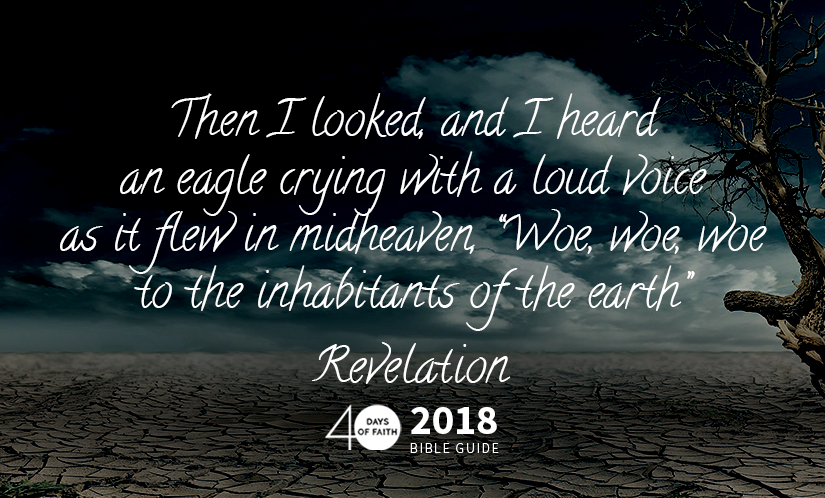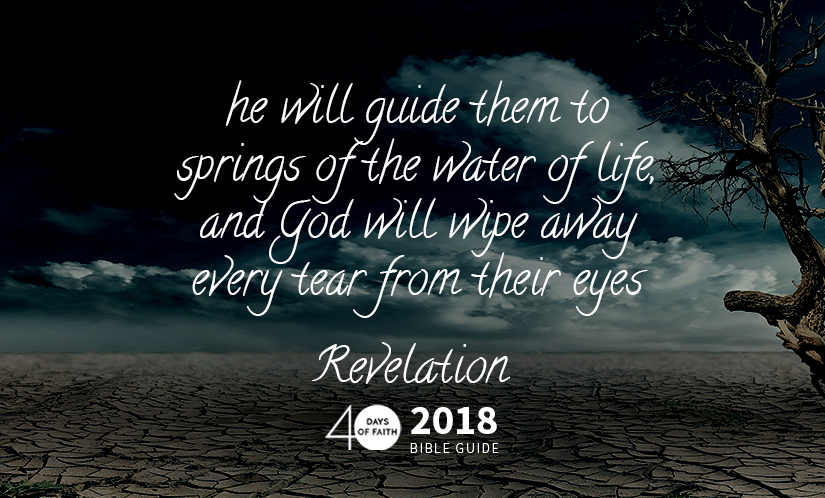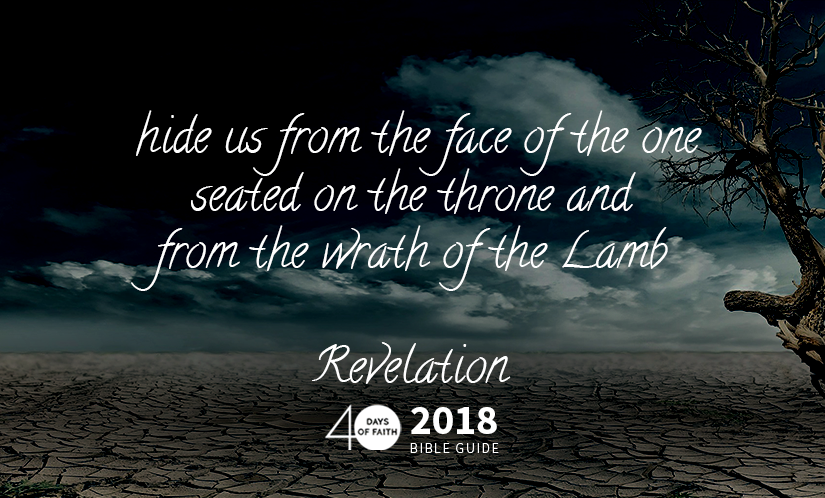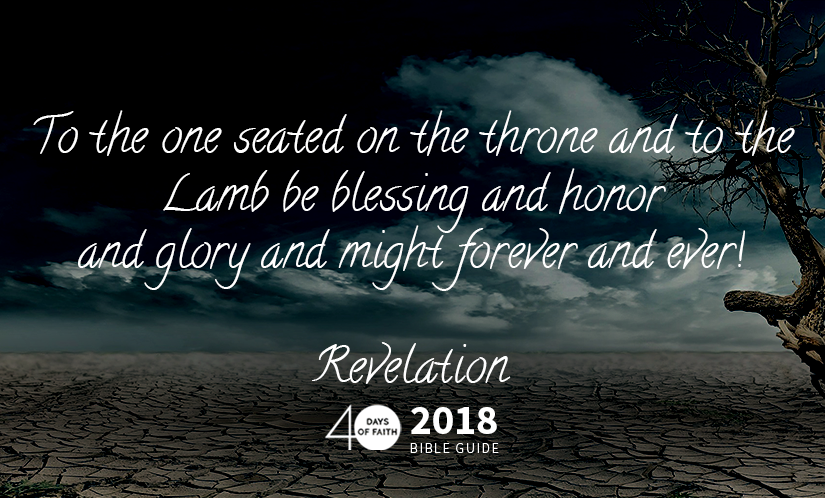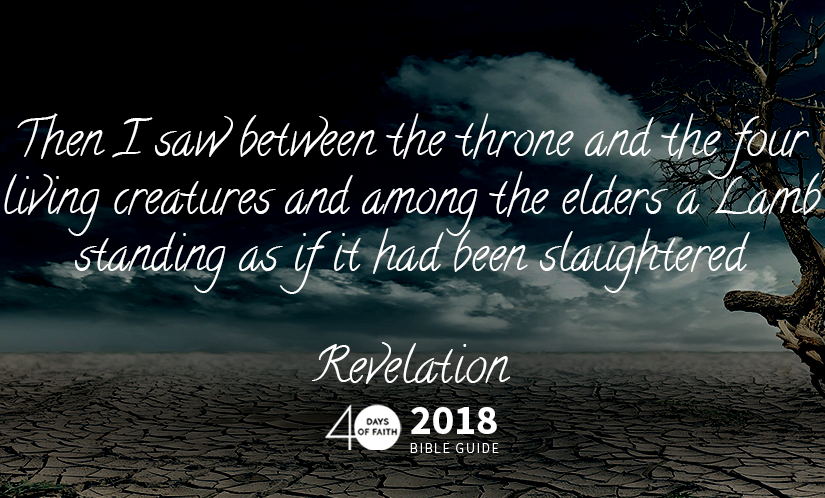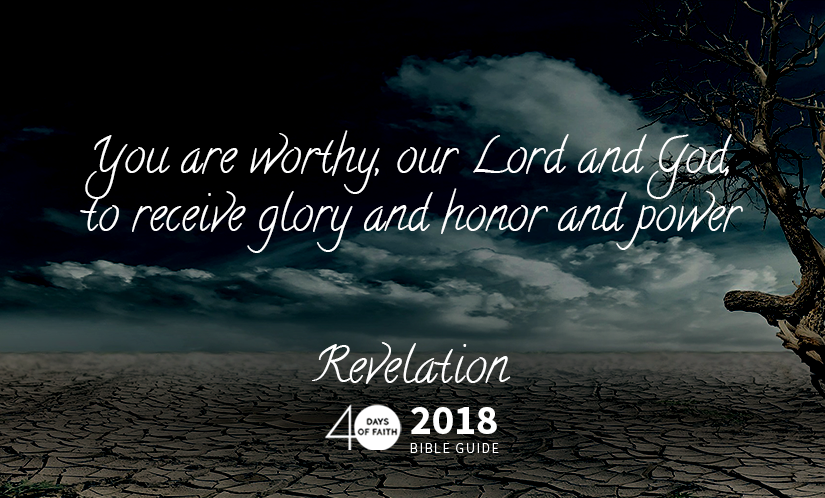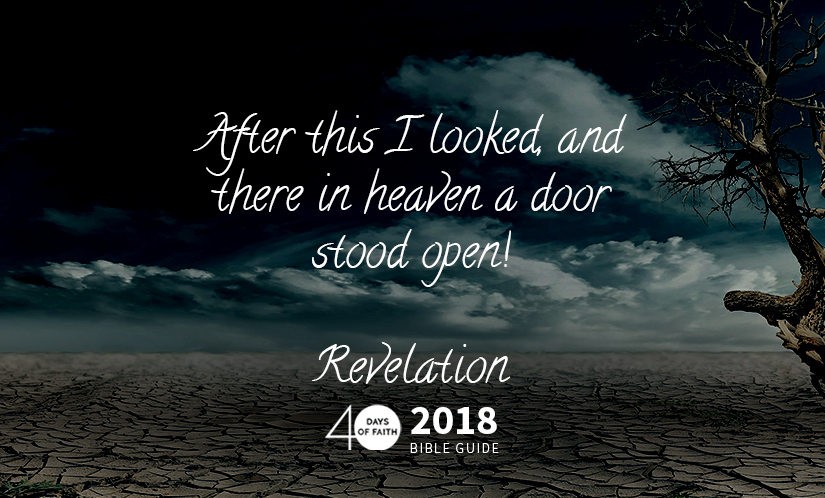Previously in Revelation
11Then they said to me, “You must prophesy again about many peoples and nations and languages and kings.”
Day 16 – 4th Monday
Revelation 11:1-19
Then I was given a measuring rod like a staff, and I was told, “Come and measure the temple of God and the altar and those who worship there, 2but do not measure the court outside the temple; leave that out, for it is given over to the nations, and they will trample over the holy city for forty-two months. 3And I will grant my two witnesses authority to prophesy for one thousand two hundred sixty days, wearing sackcloth.”
4These are the two olive trees and the two lampstands that stand before the Lord of the earth. 5And if anyone wants to harm them, fire pours from their mouth and consumes their foes; anyone who wants to harm them must be killed in this manner. 6They have authority to shut the sky, so that no rain may fall during the days of their prophesying, and they have authority over the waters to turn them into blood, and to strike the earth with every kind of plague, as often as they desire.
7When they have finished their testimony, the beast that comes up from the bottomless pit will make war on them and conquer them and kill them, 8and their dead bodies will lie in the street of the great city that is prophetically called Sodom and Egypt, where also their Lord was crucified. 9For three and a half days members of the peoples and tribes and languages and nations will gaze at their dead bodies and refuse to let them be placed in a tomb; 10and the inhabitants of the earth will gloat over them and celebrate and exchange presents, because these two prophets had been a torment to the inhabitants of the earth.
11But after the three and a half days, the breath of life from God entered them, and they stood on their feet, and those who saw them were terrified. 12Then they heard a loud voice from heaven saying to them, “Come up here!” And they went up to heaven in a cloud while their enemies watched them. 13At that moment there was a great earthquake, and a tenth of the city fell; seven thousand people were killed in the earthquake, and the rest were terrified and gave glory to the God of heaven.
14The second woe has passed. The third woe is coming very soon.
15Then the seventh angel blew his trumpet, and there were loud voices in heaven, saying,
“The kingdom of the world has become the kingdom of our Lord
and of his Messiah,
and he will reign forever and ever.”16Then the twenty-four elders who sit on their thrones before God fell on their faces and worshiped God, 17 singing,
“We give you thanks, Lord God Almighty,
who are and who were,
for you have taken your great power
and begun to reign.
18The nations raged,
but your wrath has come,
and the time for judging the dead,
for rewarding your servants, the prophets
and saints and all who fear your name,
both small and great,
and for destroying those who destroy the earth.”19Then God’s temple in heaven was opened, and the ark of his covenant was seen within his temple; and there were flashes of lightning, rumblings, peals of thunder, an earthquake, and heavy hail.
Points of Interest
- Where are we again? Since chapter six, we’ve been reading a coded historical review – John’s perspective of God’s perspective on history. It’s been portrayed as a written announcement with seven seals and an oral proclamation of seven trumpets.
- “the temple” – The chapter begins with John measuring the temple and ends with him finding the ark of the covenant inside, which is confusing because Jerusalem Temple 2.0 was destroyed by Rome a generation before this and the ark was lost when version 1.0 was destroyed by Babylon centuries earlier. But the temple always symbolized God’s presence with God’s people on earth. To me, this sounds like John is saying that all is well. God is still here, still with people that love and wait for God.
- “forty-two months” – Various versions of three and a half years and three and a half days are all over the middle of Revelation. It’s half of John’s number of perfection and means something like “feels like a long time, but it’s only a little while.”
- “two witnesses” – We don’t know who these two witnesses are that speak for God. Jewish law and culture required two witnesses for any trustworthy statement. These could reference lots of Old Testament prophets. The best scholarship I’ve read is that this may be Jesus and the church of Jesus. The rest of this review has been threats of plagues and suffering if people don’t shape up, and we saw in 9:20 that punishment doesn’t work to change hearts and minds. So, near the end of this section, we see God taking another strategy – speaking truth, dying, and rising again. This is to be the pattern of Jesus’ church in the world too – speaking and living the truth in love, even to the point of suffering, and trusting God for resurrection.
- “the seventh angel blew his trumpet” – We’re ready for the final beat in this long historical review. More punishment, more suffering, more plagues, right? Wrong. There’s a surprise coming. Death and resurrection leads to a new community, a new way of God on earth, and a different kind of victory.
- “the kingdom of the world” – This is radical stuff. In John’s time, the kingdom of the world was the Roman empire, looking like the mightiest force the earth had ever seen. John says it’s breathing its dying gasps. The kingdom/Empire/country of God is just beginning.
- “destroying those who destroy the earth” – Scripture teaches that God’s deepest ways are grace and mercy. But there’s a form of karma in God’s ways as well. People and empires that destroy will themselves be destroyed, if we don’t call out to God for mercy and start to change. That looks like wrath when it happens, but really, it is justice.
Spiritual Exercise
This week, we’ll respond to the idea of judgment by practicing critique and truth telling – noticing places in our own contemporary American consumer empire that overpromise, lie, or do violence. Is there a distraction or pleasure that culture promotes that you’ve hoped will shield you from suffering and pain? Ask God for the courage to let it go, and trust God to comfort and deliver you from pain.
A Direction for Prayer
Pray for your church’s witness in your city, that your church would remind people God is with us – not as another destroyer of the earth, but as one who has died and risen to establish a better community and a better way of life.
The Bible Guide
This blog post is part of a Lenten journey through the book of Revelation. Every year during the season of Lent, we take a focused look at a portion of Scripture as part of our communal spiritual practice. This year, we are exploring what it means to be Children of God in a Fractured World, with Revelation as our lens. On Sundays, we’re exploring this with our sermons; on weekdays, we’re doing so with our bible guide. The bible guide series starts here.


